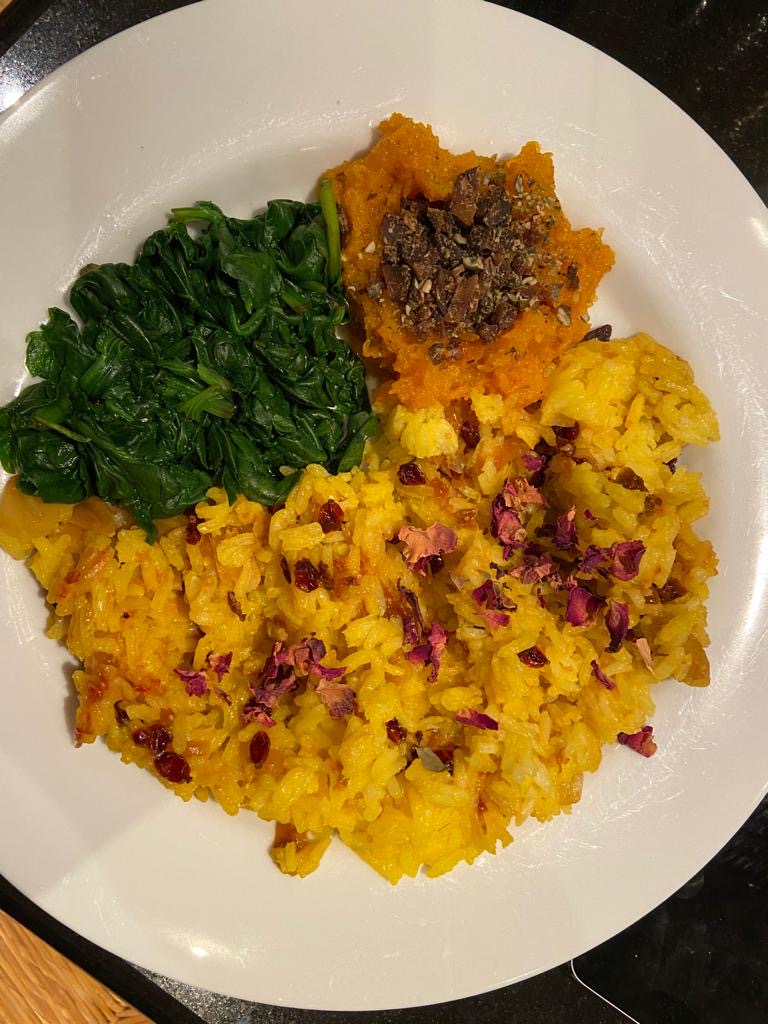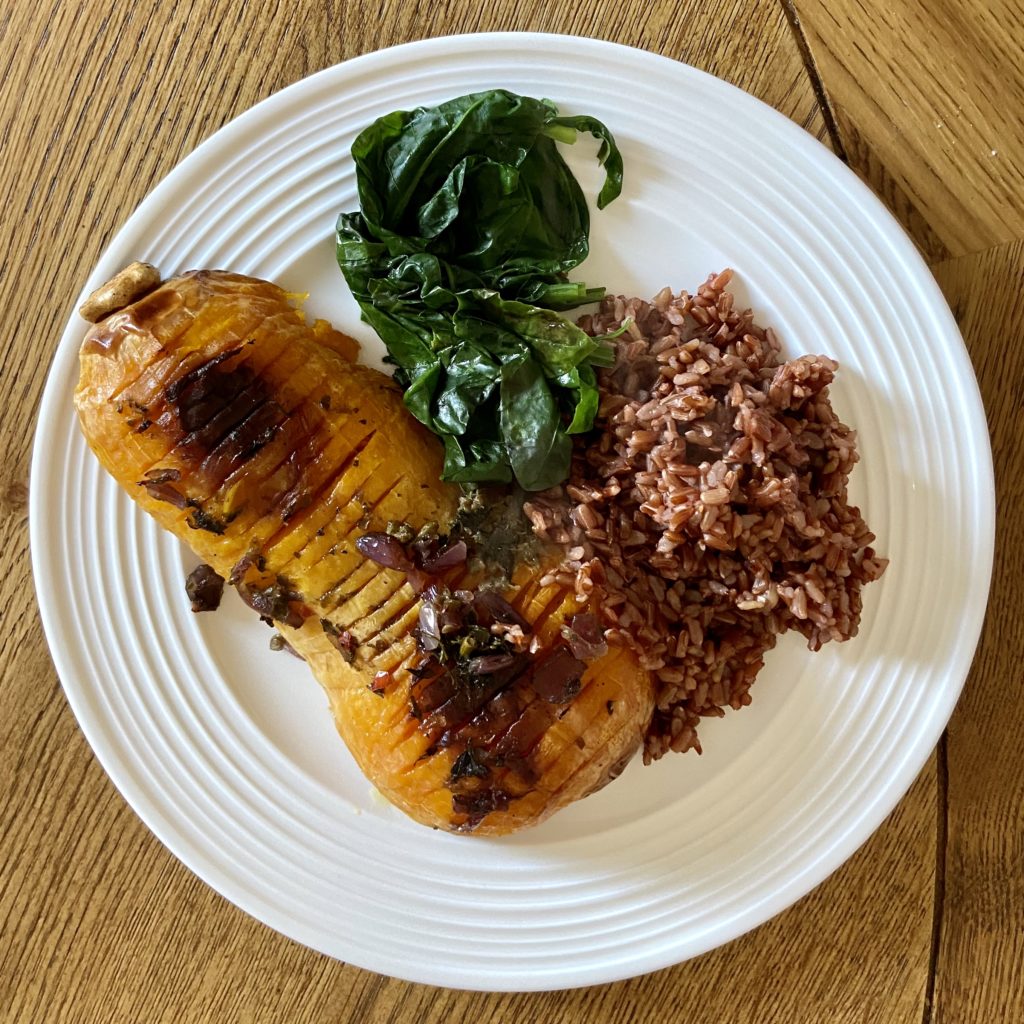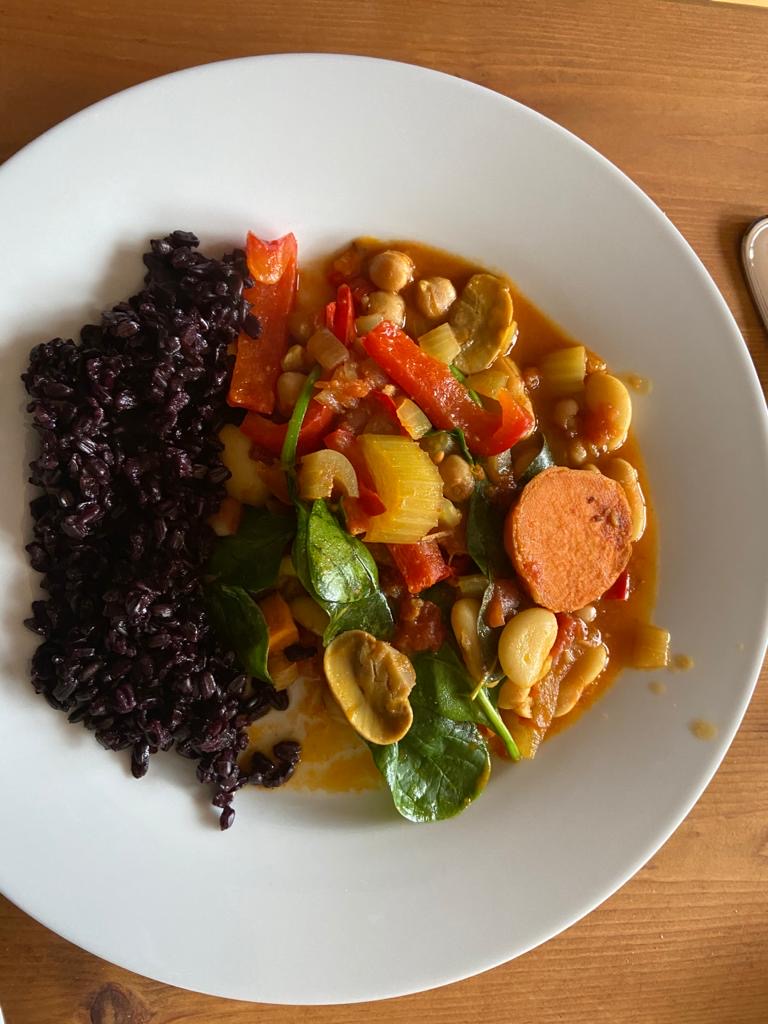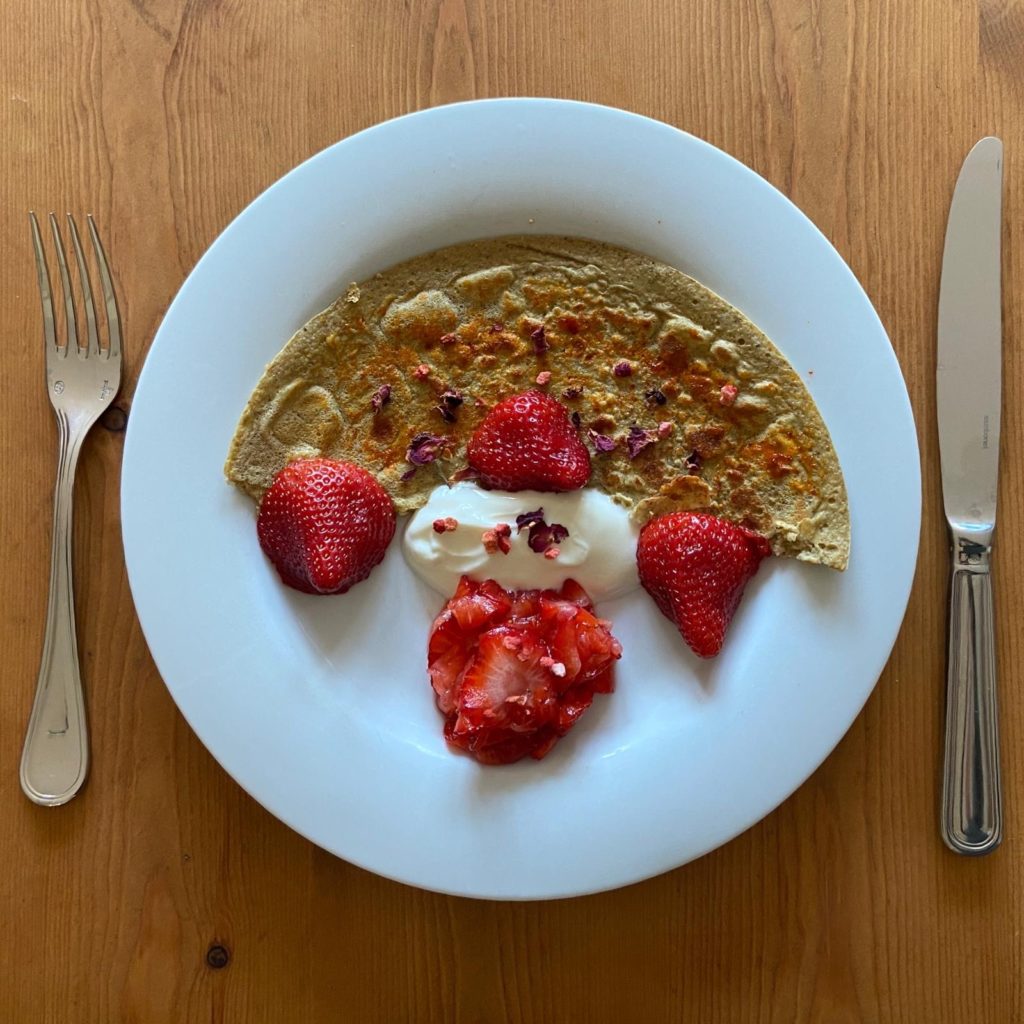Caveat emptor: my musings may not be complete let alone correct.
My first year as a vegetarian year has passed quickly and comfortably. We took How Not To Die very seriously and this excellent cookbook makes regular appearances on the kitchen counter even now.
You probably realise that wine, beer, bread and blue cheese exist because of fungal agency. Having met these big four, you’ll recognise that the benison of yeasts and spores is unobtrusively vital to our everyday lives. You have learned to avoid the yeasts and moulds of decay because the mycotoxins have a well deserved bad reputation. Good fungus, bad fungus. A sad fact you may not know is that fungus kills more humans than malaria (I’ll let you search for fungal diseases alone).
I shouldn’t consume any wine, beer, bread or cheese according to the medical advice that caused me to become vegetarian.
Avoiding alcohol isn’t a problem since I don’t partake anyway.
I did swear off bread this day last year but the pandemic gave me time to bake and over-enjoy sourdough loaves.
Purging blue cheese is much a tougher challenge. I had to go to the Sahara to learn how well Saint Agur Blue goes with a slice of pear or apple. I’m not joking; luxuries such as blue cheese and pears often surprised us in refrigerated mobile canteens in remote Francophone Africa. It’s become an evening treat while watching TV. We often use a few bullets of Stilton-stuffed dates as snacks between meals. Sorry, these are two luxuries I won’t forgo.
Our household consumes a lot of fungus in various forms. We use marmite, soy sauce, tempeh and miso regularly. Fungus is a core ingredient in them all.
And we eat a lot of cap-type mushrooms too. All sorts, in many ways. White buttons, brown cremini, girolle, portobello, porcini and shiitake to name a few. We use mushrooms in soups, sauces and stews. They are a vital part of our family risotto recipes often added as dust from ground porcini. We sometimes stuff the big caps with a charge that includes some little ones hidden in the garlic and butter.
I’ve wittered on about fungus before in this series of journals. The largest organism known on the planet is a mushroom. The 10 square kilometre mycellium of an Orgegon Honey Fungus is estimated to be at least 2,400 years old (based on current growth rates) but it could be three times that age. That’s how long mushrooms can live and such longevity has given trees a reliable partner. Trees have learned to use mycelium networks for communications as well as nutrition (another topic you might search out).
The point is that fungus is essential to life. Fungus is also essential to death because it’s the workhorse (workshroom?) of organic recycling. Fungus is everywhere and goes about its invaluable work almost unseen.
You know about the Black Death and the rats and fleas that spread it? Do you know about a fungus blight that turns bread hallucinogenic?
It seems that climate conditions were ideal for ergot during the Black Death. Cold winters were followed by wet springs, the rye blight thrived. Plague and ergot poisoning have overlapping symptoms. It might be that the massive regional variations in plague deaths were in fact due to ergot. Perhaps the worst of the plague occurred where ergot suppressed the human immune system and made people vulnerable. This was argued by Mary Matossian in Poisons of the Past (1989).
Pandemics. Co-morbidities. Mitigation. Suppression. Lock-down. Who’d have guessed that we’d hear these words almost every day? Plague (China July 2020) and ergotism (France 1951) aren’t as far away as you’d like.
I’ve started to regain weight and I’ll do most anything to avoid statins. You can read why I don’t like statins in Vegetarianism that I posted a few months ago. In short, statins work but bring me intolerable miseries. So I decided I would control my cholesterol with diet instead. And it was working very well before the topics of Covid and Cancer.
My resting heart rate has risen steadily this July and it’s fuelled by bread and the bad habits associated with bread. So I’ll stop eating bread in August because bread opens the door to butter and jam.
The pandemic has limited my exercising but not because I’m not allowed out. The quarantine is self-imposed. I believe that we must stay in protective lock-in while our daughter in undergoing cancer treatment. It’s a precautionary choice because any population, no matter how careful, always has a few bad players that we cannot afford to meet.
So I’m averaging a mere 7,000 steps a day, down from twice that this time last year. There have been no 50,000 step counts this year.
Rueben Meerman has an interesting conclusion to an informative introduction to weight loss. Eat less and move more. Here’s a fun but useful 15 minute TED talk, an update on a talk I watched a long time ago (and forgot).
I hope to be doing a lot more breathing and considerably less eating from September and maybe avoiding rye bread from August.





Leave a Reply